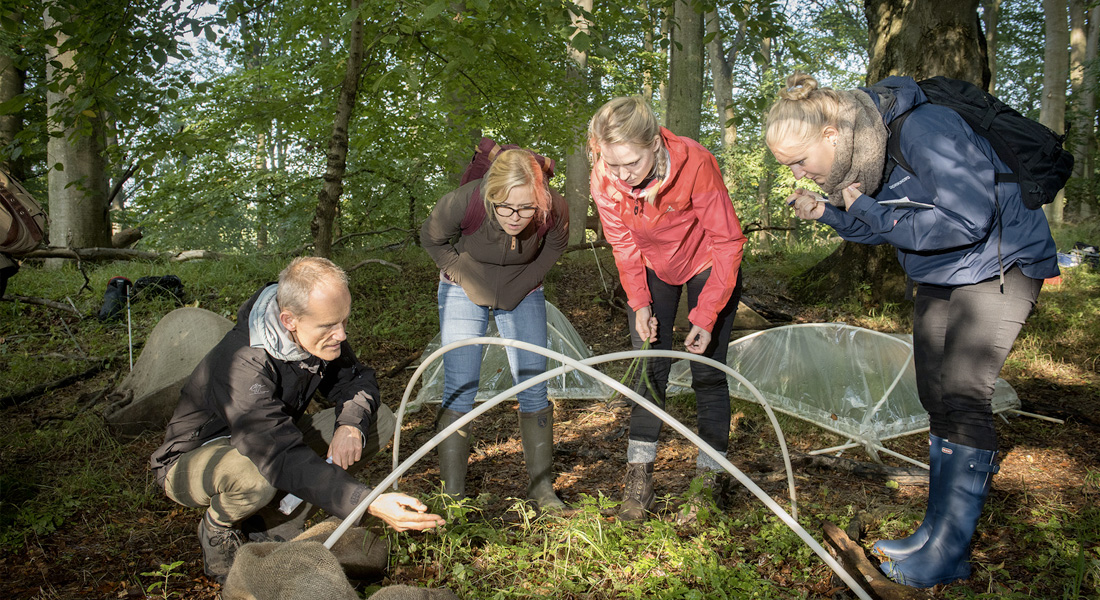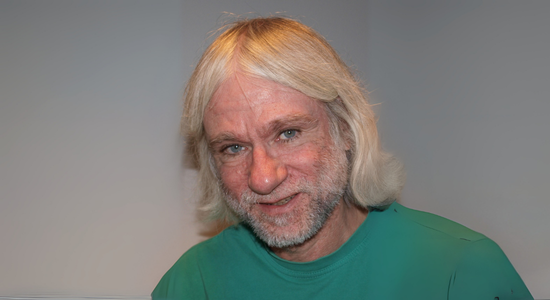Meet the members of the section
Terrestrial Ecology Section

The overall research aim of the section is to broaden our understanding of the interactions between organisms, ecosystems, and the environment, and to evaluate the effects of climate change and human activities (e.g., habitat fragmentation and pollution) on these interactions.
Our main research approach is experimental and focuses on ecosystem processes and the interactions between organisms and ecosystem components, as well as the biodiversity and functioning of soil organisms and plants and associated microorganisms. We also make use of mathematical models to quantify process interactions and feedback.
Our work relies on state-of-the-art field and laboratory infrastructure. We can quantify the elemental and isotopic composition of soil, biological tissues, and gas samples, as well as specific organic compounds. We are also equipped with advanced microscopes and growth chambers, with controlled temperature and illumination, and tools for molecular biological work, such as DNA/RNA extraction and PCR, though sequencing is performed externally.
We carry out high-precision biological, physical, chemical, and molecular analyses of plants, microorganisms, soil animals, gases, and liquids. The laboratory is fully updated with analytical equipment and takes on analytical tasks for the scientific staff at the Biological Institute, as well as for external researchers. For instance, we analyze:
- Species composition (plants, microorganisms)
- Plant biomass
- CNP in soil, plants and liquids
- Soil aggregation and wet-stability
- Secondary metabolites
- 15N and 13C in tissues
- Photosynthesis and transpirationwith Licor 6400XT
- CO2, O2, N2O, C2H4 (ethylene) and CH4 concentrations
- Volatile organic compounds
- Microbial biomass CNP
- Substrate induced respiration (SIR)
- Protein assays
- Cultivation of microorganisms (bacteria, fungi and protozoa) Isolation and experimentation with soil micro-meso-macro fauna
- DNA extraction from tissues and soil
- PCR, qPCR
- DNA and RNA sequencing
- Electrophoresis of DNA and proteins
- Microscopes: Stereo, normal light, fluorescent, inverse
The analytical equipment includes
- Agilent GC with FID
- Agilent GC/MS with thermal desorption (2 instruments)RALAB fitoclima 1200 climate chambers
- BIORAD PCR and qPCR equipment
- Eltra CS 500 Total Carbon Determinator
- EuroVector Elemental Analyzer EA3028-HT
- Fiastar 5000 Flow Analyzer
- Growth rooms and chambers, -80 freezer
- Hitachi U-2000 and U-2010 Spectrophotometers
- Ionicon PTR-ToF 1000 ultra with SRI-MS (2 instruments)
- LECO FP-428 Total Nitrogen Determinator
- LECO TruSpec Carbon Nitrogen Determinator
- Micromass IsoPrime Isotope Ratio Mass Spectrometre
- MJ PCT200, BioRad T100 and BioRad CFX connect PCR machines
- Perkin Elmer 4100 Atomic Absorption Spectrophotometer
- Picarro G2201-i Dual Carbon Isotope Analyzer
- Shimadzu GC-17A Gas Chromatograph
- Shimadzu Total Organic Carbon Analyzer TOC-5000A
- Tissue ball mills and Qiagen Tissue Lyzer
- Photosynthesis system Walz GFS-3000FL
Photosynthesis system Walz GFS-3000FL
The section teaches in courses offered in the Bachelor and Master programs in Biology, especially in the Ecology specialisation. In addition, we contribute to courses in the Master program in Climate Change.
Course coordinators: (AM) Anders Michelsen, (FE) Flemming Ekelund, (KR) Kathrin Rousk, (RK) Rasmus Kjøller and (RR) Riikka Rinnan
We welcome students to contact us for course projects and thesis projects.
Bachelor course
- Organismernes Diversitet
- Biologiske Forsøg: Design og analyse (AM)
- Populationsbiologi
- Almen Økologi
- Plant Ecophysiology (KR)
- Basal Arktisk Biologi
- Feltbiologi II Botanik (FE)
Master courses
- Advanced Ecology (KR)
- Danish Natural Habitats (FE)
- Climate Change & Biogeochemical Cycles (RR)
- Methodology and Sampling in Environmental Management (AM)
- Soil Biology (FE)
- Experimental Design and Statistical Methods in Biology (AM)
- Arctic Biology
- Terrestrial Ecosystem Processes and Global Change (AM)
- Arctic Field Course (held only even years)

 Head of Section
Head of Section